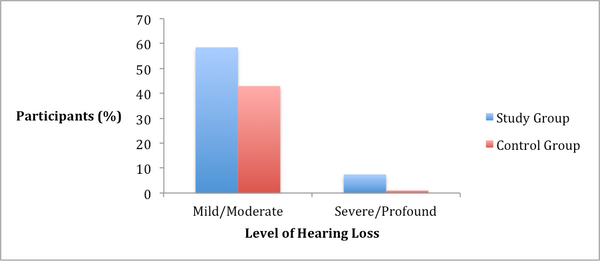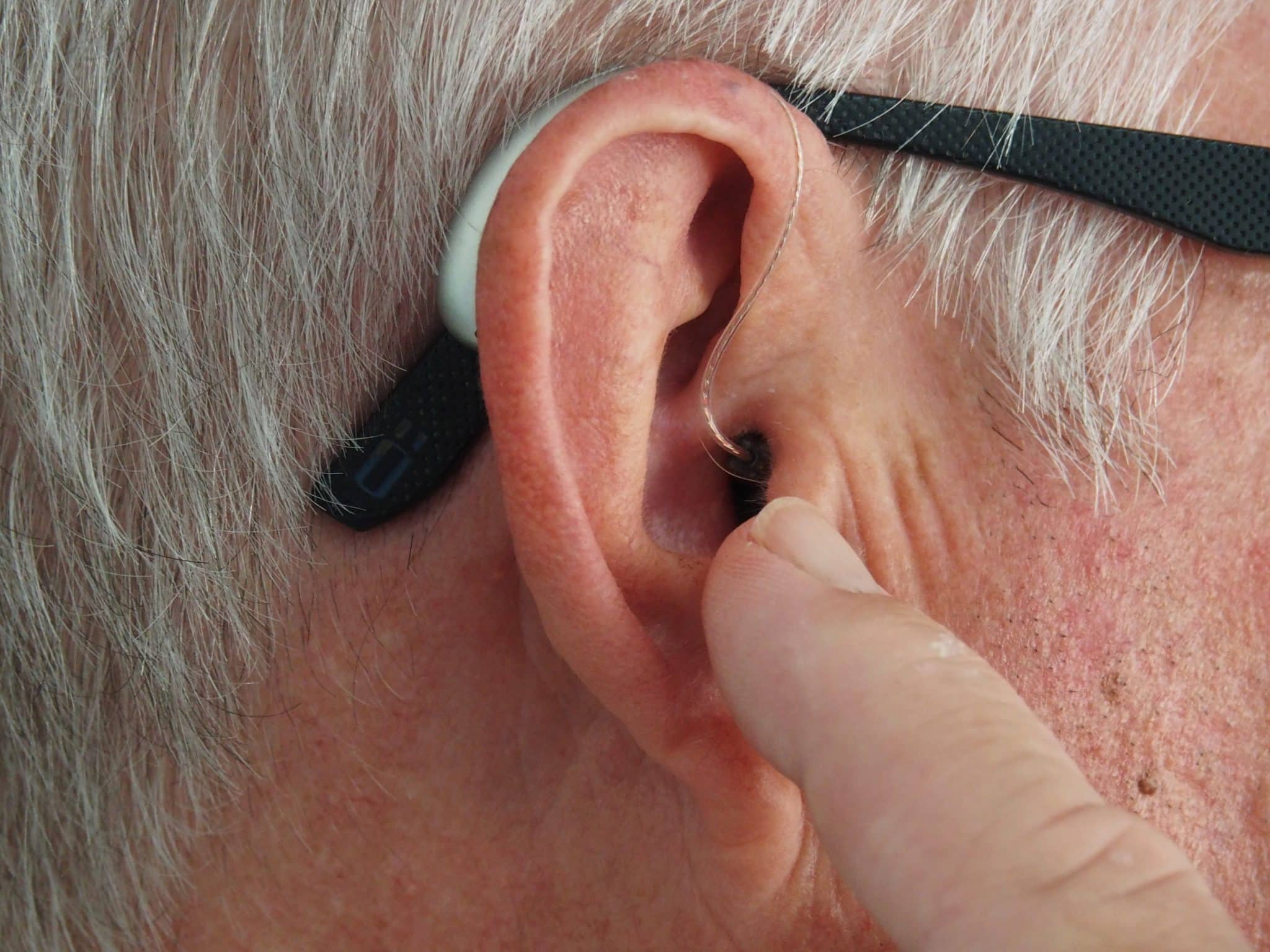
Radiotherapy, a procedure involving high-energy radiation commonly used to treat cancer, has been found to be effective for over 50% of cancer patients.
It works by damaging cancer cells to stop them from growing, however, the procedure isn’t perfect. In the process of destroying cancer cells, it also damages healthy cells, such as nerves, that are very difficult to and often cannot be repaired.
Almost 100% of the radiation from therapy for patients with head or neck cancer reaches the auditory system, which affects important cells needed for hearing. Because radiotherapy is such an effective treatment, an increasing number of cancer patients will need hearing aids to accommodate the possible hearing loss.
A study by Dr. Christiane Schultz et al. published in the Otolaryngology section of the
Journal of the American Medical Association compared the hearing abilities of 141 patients with head or neck cancer who had received radiotherapy with another group of 141 head/neck cancer patients who had not received such therapy.
Their findings revealed a large difference in hearing levels. 72.3% of patients who had received radiotherapy experienced hearing loss versus a much lower 48.9% of patients who had not received the therapy, showing a significant 23.4% difference between the study and control group.
Radiotherapy recipients also showed much higher levels of severe hearing loss: 19.8% as opposed to only 2.8% of the control group. We’ve averaged and graphed the hearing loss recorded in the left and right ears of the study and control group to provide a better visual of the large disparity in post-therapy hearing abilities.
The blue columns show the percentage of radiotherapy patients with each level of hearing loss, and the red columns represent the control patients.

Our very own audiologist, Dr. Tammy Flodmand, who has been providing answers to your questions about hearing aids, commented on her first-hand experience with monitoring hearing loss in patients receiving treatments.
"I used to work in a hospital where we did hearing testing as part of a routine battery of tests weekly or monthly prior to radiation/
chemo treatment,” said Dr. Flodmand. “If we saw changes, we would alert the physician so they could try to change the meds. Sometimes there was nothing we could do…which was especially difficult to see with the little ones.” Dr. Flodmand’s account shows the bittersweet trade-off often required to effectively cure cancer patients.
The authors of the study also stressed the social consequences of hearing loss that can be prevented by the right hearing aid, such as
depression, isolation, and loneliness.
Unfortunately, damage to the auditory nerve, cochlea, or other parts of the auditory system is often impossible to remedy. These specific side effects of radiotherapy led researchers to identify
sensorineural hearing loss as the main type of hearing impairment.
We’ve laid out the different types of hearing aids that best fit each type of hearing loss in a previous blog post, but remember to consult an audiologist before purchasing them.
Although hearing loss is a relatively common major side effect of necessary treatment, thankfully affordable hearing aids exist for patients to continue leading their lives normally.
by Diana Ruan
 Radiotherapy, a procedure involving high-energy radiation commonly used to treat cancer, has been found to be effective for over 50% of cancer patients.
It works by damaging cancer cells to stop them from growing, however, the procedure isn’t perfect. In the process of destroying cancer cells, it also damages healthy cells, such as nerves, that are very difficult to and often cannot be repaired.
Almost 100% of the radiation from therapy for patients with head or neck cancer reaches the auditory system, which affects important cells needed for hearing. Because radiotherapy is such an effective treatment, an increasing number of cancer patients will need hearing aids to accommodate the possible hearing loss.
A study by Dr. Christiane Schultz et al. published in the Otolaryngology section of the Journal of the American Medical Association compared the hearing abilities of 141 patients with head or neck cancer who had received radiotherapy with another group of 141 head/neck cancer patients who had not received such therapy.
Their findings revealed a large difference in hearing levels. 72.3% of patients who had received radiotherapy experienced hearing loss versus a much lower 48.9% of patients who had not received the therapy, showing a significant 23.4% difference between the study and control group.
Radiotherapy recipients also showed much higher levels of severe hearing loss: 19.8% as opposed to only 2.8% of the control group. We’ve averaged and graphed the hearing loss recorded in the left and right ears of the study and control group to provide a better visual of the large disparity in post-therapy hearing abilities.
The blue columns show the percentage of radiotherapy patients with each level of hearing loss, and the red columns represent the control patients.
Radiotherapy, a procedure involving high-energy radiation commonly used to treat cancer, has been found to be effective for over 50% of cancer patients.
It works by damaging cancer cells to stop them from growing, however, the procedure isn’t perfect. In the process of destroying cancer cells, it also damages healthy cells, such as nerves, that are very difficult to and often cannot be repaired.
Almost 100% of the radiation from therapy for patients with head or neck cancer reaches the auditory system, which affects important cells needed for hearing. Because radiotherapy is such an effective treatment, an increasing number of cancer patients will need hearing aids to accommodate the possible hearing loss.
A study by Dr. Christiane Schultz et al. published in the Otolaryngology section of the Journal of the American Medical Association compared the hearing abilities of 141 patients with head or neck cancer who had received radiotherapy with another group of 141 head/neck cancer patients who had not received such therapy.
Their findings revealed a large difference in hearing levels. 72.3% of patients who had received radiotherapy experienced hearing loss versus a much lower 48.9% of patients who had not received the therapy, showing a significant 23.4% difference between the study and control group.
Radiotherapy recipients also showed much higher levels of severe hearing loss: 19.8% as opposed to only 2.8% of the control group. We’ve averaged and graphed the hearing loss recorded in the left and right ears of the study and control group to provide a better visual of the large disparity in post-therapy hearing abilities.
The blue columns show the percentage of radiotherapy patients with each level of hearing loss, and the red columns represent the control patients.
 Our very own audiologist, Dr. Tammy Flodmand, who has been providing answers to your questions about hearing aids, commented on her first-hand experience with monitoring hearing loss in patients receiving treatments.
"I used to work in a hospital where we did hearing testing as part of a routine battery of tests weekly or monthly prior to radiation/chemo treatment,” said Dr. Flodmand. “If we saw changes, we would alert the physician so they could try to change the meds. Sometimes there was nothing we could do…which was especially difficult to see with the little ones.” Dr. Flodmand’s account shows the bittersweet trade-off often required to effectively cure cancer patients.
The authors of the study also stressed the social consequences of hearing loss that can be prevented by the right hearing aid, such as depression, isolation, and loneliness.
Unfortunately, damage to the auditory nerve, cochlea, or other parts of the auditory system is often impossible to remedy. These specific side effects of radiotherapy led researchers to identify sensorineural hearing loss as the main type of hearing impairment.
We’ve laid out the different types of hearing aids that best fit each type of hearing loss in a previous blog post, but remember to consult an audiologist before purchasing them.
Although hearing loss is a relatively common major side effect of necessary treatment, thankfully affordable hearing aids exist for patients to continue leading their lives normally.
Our very own audiologist, Dr. Tammy Flodmand, who has been providing answers to your questions about hearing aids, commented on her first-hand experience with monitoring hearing loss in patients receiving treatments.
"I used to work in a hospital where we did hearing testing as part of a routine battery of tests weekly or monthly prior to radiation/chemo treatment,” said Dr. Flodmand. “If we saw changes, we would alert the physician so they could try to change the meds. Sometimes there was nothing we could do…which was especially difficult to see with the little ones.” Dr. Flodmand’s account shows the bittersweet trade-off often required to effectively cure cancer patients.
The authors of the study also stressed the social consequences of hearing loss that can be prevented by the right hearing aid, such as depression, isolation, and loneliness.
Unfortunately, damage to the auditory nerve, cochlea, or other parts of the auditory system is often impossible to remedy. These specific side effects of radiotherapy led researchers to identify sensorineural hearing loss as the main type of hearing impairment.
We’ve laid out the different types of hearing aids that best fit each type of hearing loss in a previous blog post, but remember to consult an audiologist before purchasing them.
Although hearing loss is a relatively common major side effect of necessary treatment, thankfully affordable hearing aids exist for patients to continue leading their lives normally.




